Serving 2,856 students in grades 9-12, Taylor High School ranks in the bottom 50% of all schools in Texas for overall test scores (math proficiency is bottom 50%, and reading proficiency is bottom 50%).
The percentage of students achieving proficiency in math is 24% (which is lower than the Texas state average of 41%). The percentage of students achieving proficiency in reading/language arts is 28% (which is lower than the Texas state average of 51%).
The student:teacher ratio of 17:1 is higher than the Texas state level of 14:1.
Minority enrollment is 96% of the student body (majority Hispanic), which is higher than the Texas state average of 75% (majority Hispanic).
Quick Stats (2025)
- Grades: 9-12
- Enrollment: 2,856 students
- Student:Teacher Ratio: 17:1
- Minority Enrollment: 96%
- Graduation Rate: 87% (Btm 50% in TX)
- Overall Testing Rank: Bottom 50%
- Math Proficiency: 24% (Btm 50%)
- Reading Proficiency: 28% (Btm 50%)
- Science Proficiency: 33% (Btm 50%)
- Source: National Center for Education Statistics (NCES), TX Dept. of Education
School Overview
Taylor High School's student population of 2,856 students has declined by 8% over five school years.
The teacher population of 170 teachers has declined by 9% over five school years.
Grades Offered
Grades 9-12
Total Students
2,856 students
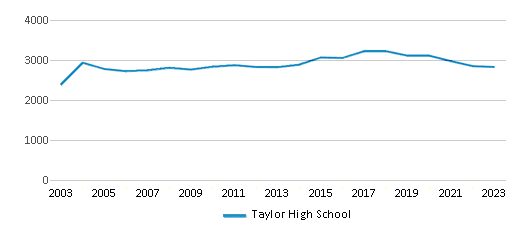
Gender %
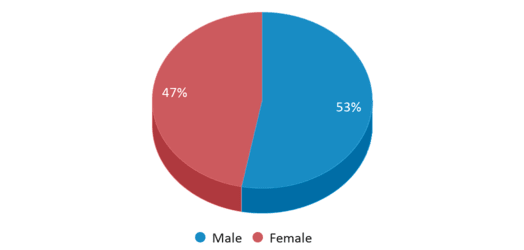
Total Classroom Teachers
170 teachers
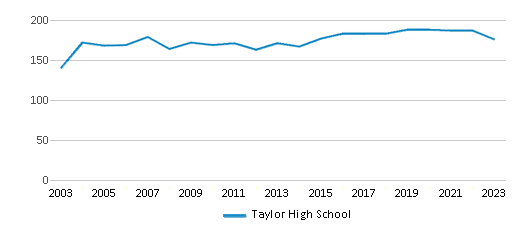
Students by Grade
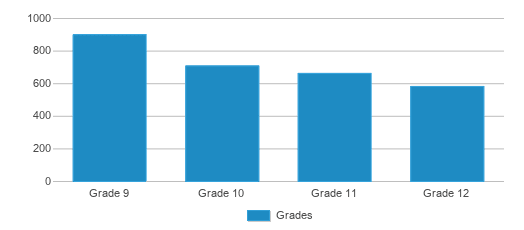
School Rankings
Taylor High School ranks within the bottom 50% of all 8,188 schools in Texas (based off of combined math and reading proficiency testing data).
The diversity score of Taylor High School is 0.58, which is less than the diversity score at state average of 0.64. The school's diversity has stayed relatively flat over five school years.
Overall Testing Rank
#7397 out of 8188 schools
(Bottom 50%)
(Bottom 50%)
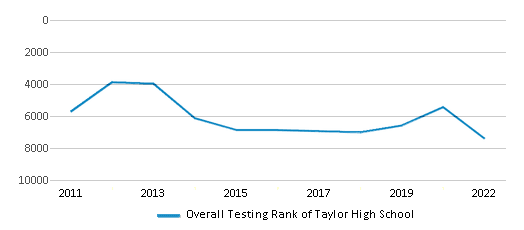
Math Test Scores (% Proficient)
24%
41%
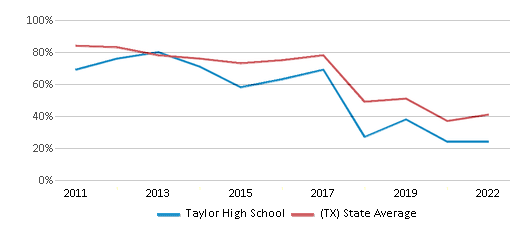
Reading/Language Arts Test Scores (% Proficient)
28%
51%
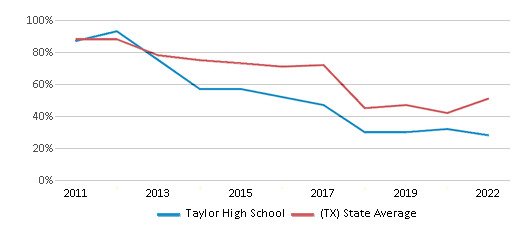
Science Test Scores (% Proficient)
33%
46%
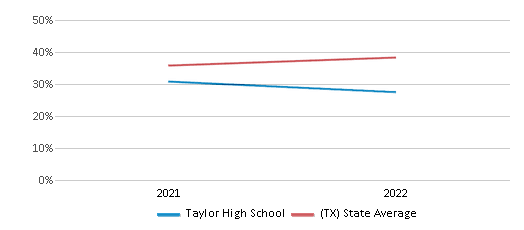
Student : Teacher Ratio
17:1
14:1
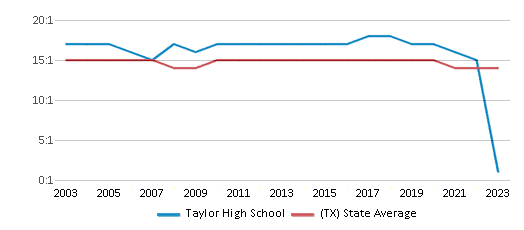
American Indian
1%
n/a
Asian
10%
6%
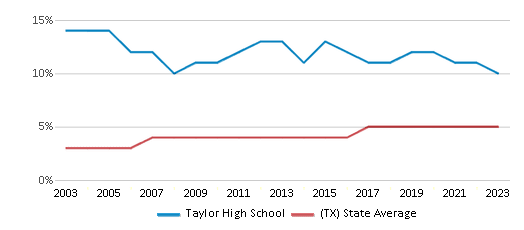
Hispanic
59%
53%
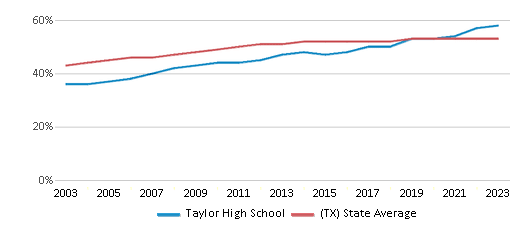
Black
26%
13%
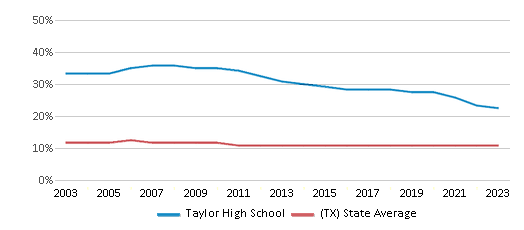
White
4%
25%
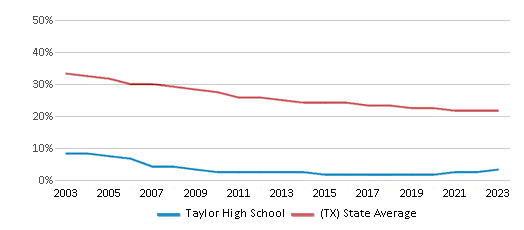
Hawaiian
n/a
n/a
Two or more races
n/a
3%
All Ethnic Groups
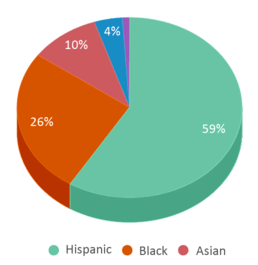
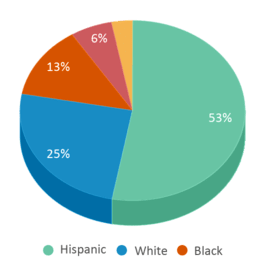
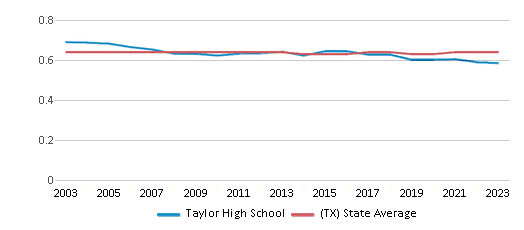
Graduation Rate
87%
90%
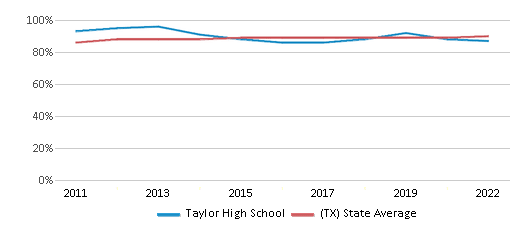
Participates in the National School Lunch Program (NSLP)
Yes
Eligible for Free Lunch
71%
57%
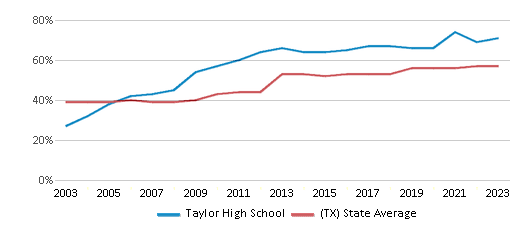
Eligible for Reduced Lunch
10%
5%
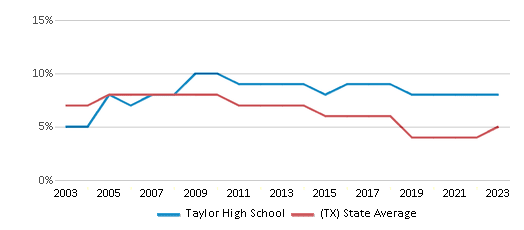
School Statewide Testing
School District Name
Source: National Center for Education Statistics (NCES), TX Dept. of Education
Profile last updated: 02/09/2025
Frequently Asked Questions
What is Taylor High School's ranking?
Taylor High School is ranked #7397 out of 8,188 schools, which ranks it among the bottom 50% of public schools in Texas.
What schools are Taylor High School often compared to?
Taylor High Schoolis often viewed alongside schools like Kerr High School, Taylor High School by visitors of our site.
What percent of students have achieved state testing proficiency in math and reading?
24% of students have achieved math proficiency (compared to the 41% TX state average), while 28% of students have achieved reading proficiency (compared to the 51% TX state average).
What is the graduation rate of Taylor High School?
The graduation rate of Taylor High School is 87%, which is lower than the Texas state average of 90%.
How many students attend Taylor High School?
2,856 students attend Taylor High School.
What is the racial composition of the student body?
59% of Taylor High School students are Hispanic, 26% of students are Black, 10% of students are Asian, 4% of students are White, and 1% of students are American Indian.
What is the student:teacher ratio of Taylor High School?
Taylor High School has a student ration of 17:1, which is higher than the Texas state average of 14:1.
What grades does Taylor High School offer ?
Taylor High School offers enrollment in grades 9-12
What school district is Taylor High School part of?
Taylor High School is part of Alief Independent School District.
In what neighborhood is Taylor High School located?
Taylor High School is located in the Bellaire View neighborhood of Houston, TX.
School Reviews
1 4/6/2019
I teach there and feel that discipline is a serious problem. The administration does not back up the teachers. Also, we are quietly told to pass along all kids. The kids know that they can turn late work -very late- and get full credit. The students don`t know how to write a complete thought using correct grammar. The students are overall very disresoectful to adults and each other. There us also a very serious attendance and tardy issue.
2 12/13/2010
This school shouldn't be open. Their staff and principal are corrupt and are racist when alone with students. I highly suggest that the staff be replaced so special education can be treated with respect and not demeaning staff members looking to hurt them. The staff needs to be checked. Also, I heard from my son and his friends that the food there has hair in it! Parents should not send their children to this school. I am taking mine out as soon as possible.
-A concerned parent of a sophmore.
Review Taylor High School. Reviews should be a few sentences in length. Please include any comments on:
- Quality of academic programs, teachers, and facilities
- Availability of music, art, sports and other extracurricular activities
Recent Articles

What Is A Charter School?
Explore the world of charter schools in this comprehensive guide. Learn about their history, how they operate, and the pros and cons of this educational innovation. Discover key facts about charter schools, including admission policies, demographics, and funding, as well as what to look for when considering a charter school for your child.

10 Reasons Why High School Sports Benefit Students
Discover the 10 compelling reasons why high school sports are beneficial for students. This comprehensive article explores how athletics enhance academic performance, foster personal growth, and develop crucial life skills. From improved fitness and time management to leadership development and community representation, learn why participating in high school sports can be a game-changer for students' overall success and well-being.

February 05, 2025
Understanding the U.S. Department of Education: Structure, Impact, and EvolutionWe explore how the Department of Education shapes American education, from its cabinet-level leadership to its impact on millions of students, written for general audiences seeking clarity on this vital institution.





